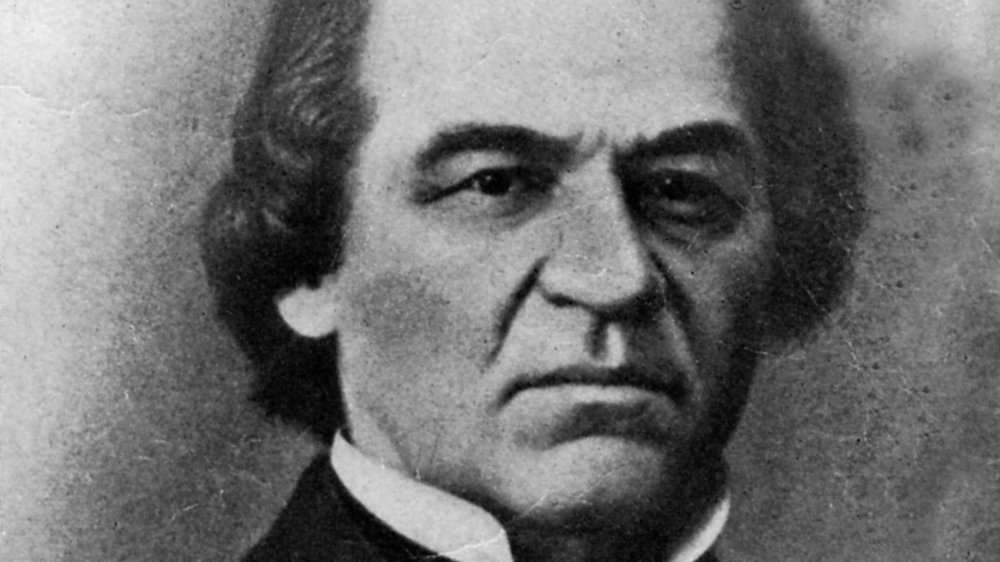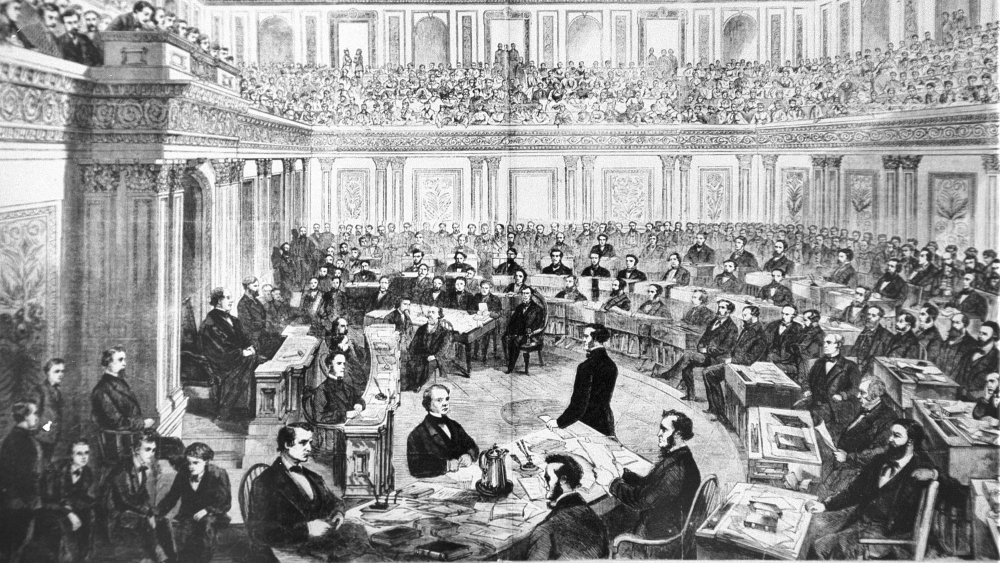The Truth About The First President To Be Impeached
Andrew Johnson was Abraham Lincoln's vice-president and assumed the United States presidency after John Wilkes Booth assassinated Lincoln on April 15, 1865. Per the Belleville News-Democrat, Republican Lincoln had selected a Democrat as his running mate because pro-Civil War Republicans had temporarily changed their party name to the National Union Party to reflect their alliance with pro-Civil War Democrats and Lincoln wanted "to try to make those defecting War Democrats happy." It made sense at the time, apparently.
Despite being what PBS American Experience called "a Union man," Johnson still had Southern roots despite his rejection of the Confederacy and was quoted as saying "This is a country for white men and as long as I am president, it shall be a government for white men."
This ideology clashed with Radical Republicans who were working to guarantee the rights of formerly enslaved people by passing the Reconstruction Acts, "laws that provided suffrage... and prevented former Southern rebels from regaining control of the state governments." Johnson blocked the Reconstruction Acts multiple times while giving "pardons to ex-Rebels... [and] hamper[ing] military commanders' efforts to block the rise of Southern leaders to power."
Just one vote
The final straw came when Johnson ignored the Tenure of Office Act in 1867 which, says PBS American Experience, "made it impossible for the president to dismiss important government officials without the permission of the Senate." Johnson suspended Secretary of War Edwin M. Stanton due to his support of the Reconstruction and appointed popular war general Ulysses S. Grant. Congress overruled the appointment, which led to Grant resigning his position. Johnson then fired Stanton, but "with the support of the Republicans, Stanton responded by locking himself in his office and refusing to leave."
The House of Representatives responded to Johnson's behavior by formally impeaching him on February 24, 1868 with a vote of 126 to 47. The charge included violation of the Tenure of Office Act as well as causing "disgrace, ridicule, hatred, contempt, and reproach [to] the Congress of the United States." Johnson's resulting Senate trial lasted for 11 weeks, during which "he promised to enforce the Reconstruction Acts and to give no more speeches attacking Congress." His promises worked; he was spared removal from office by just one vote. However, for the rest of his term "he continued to veto Reconstruction bills, but Congress overrode his vetoes." In 1868, the Republican candidate won the presidential election; it was none other than Ulysses S. Grant.

